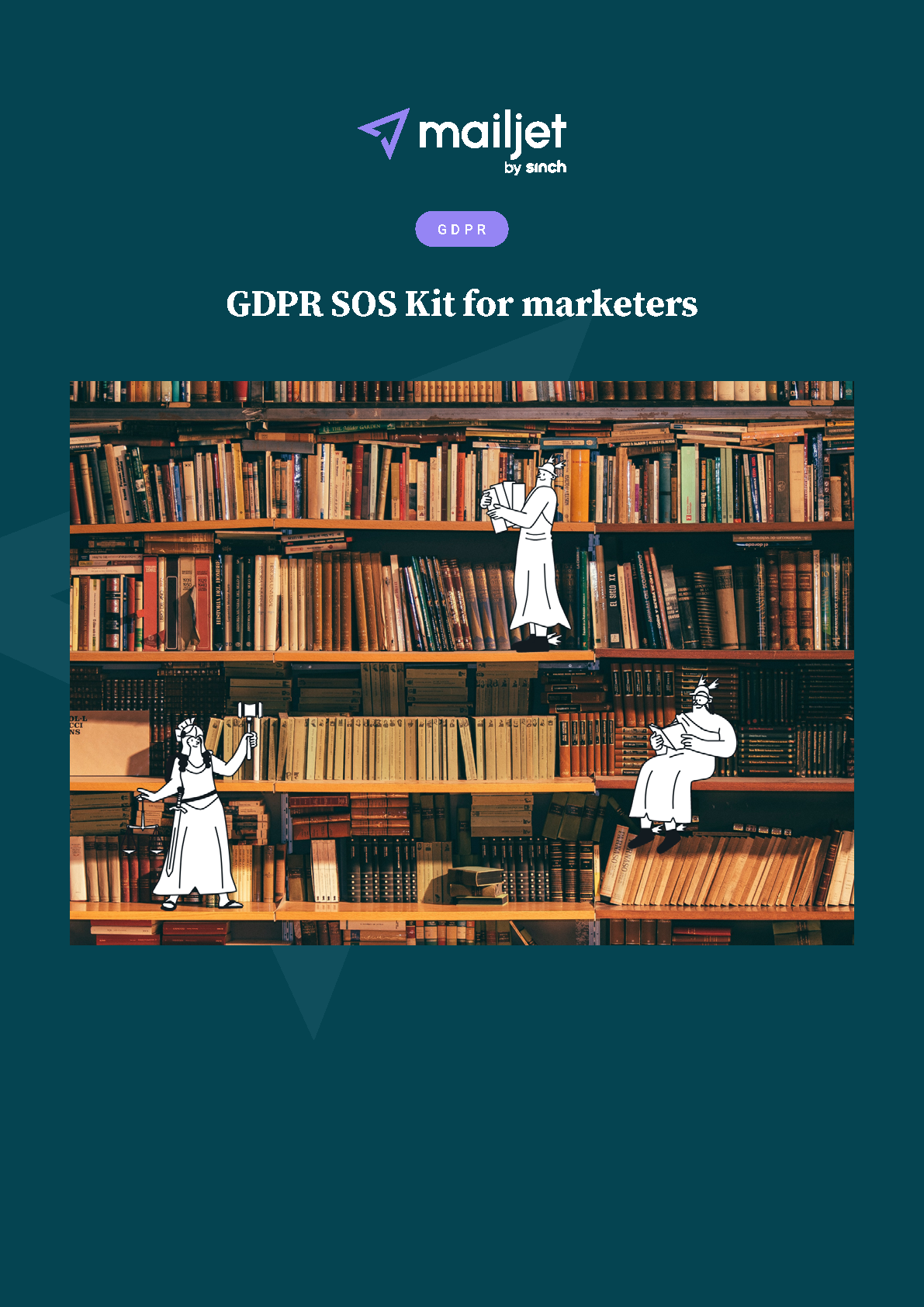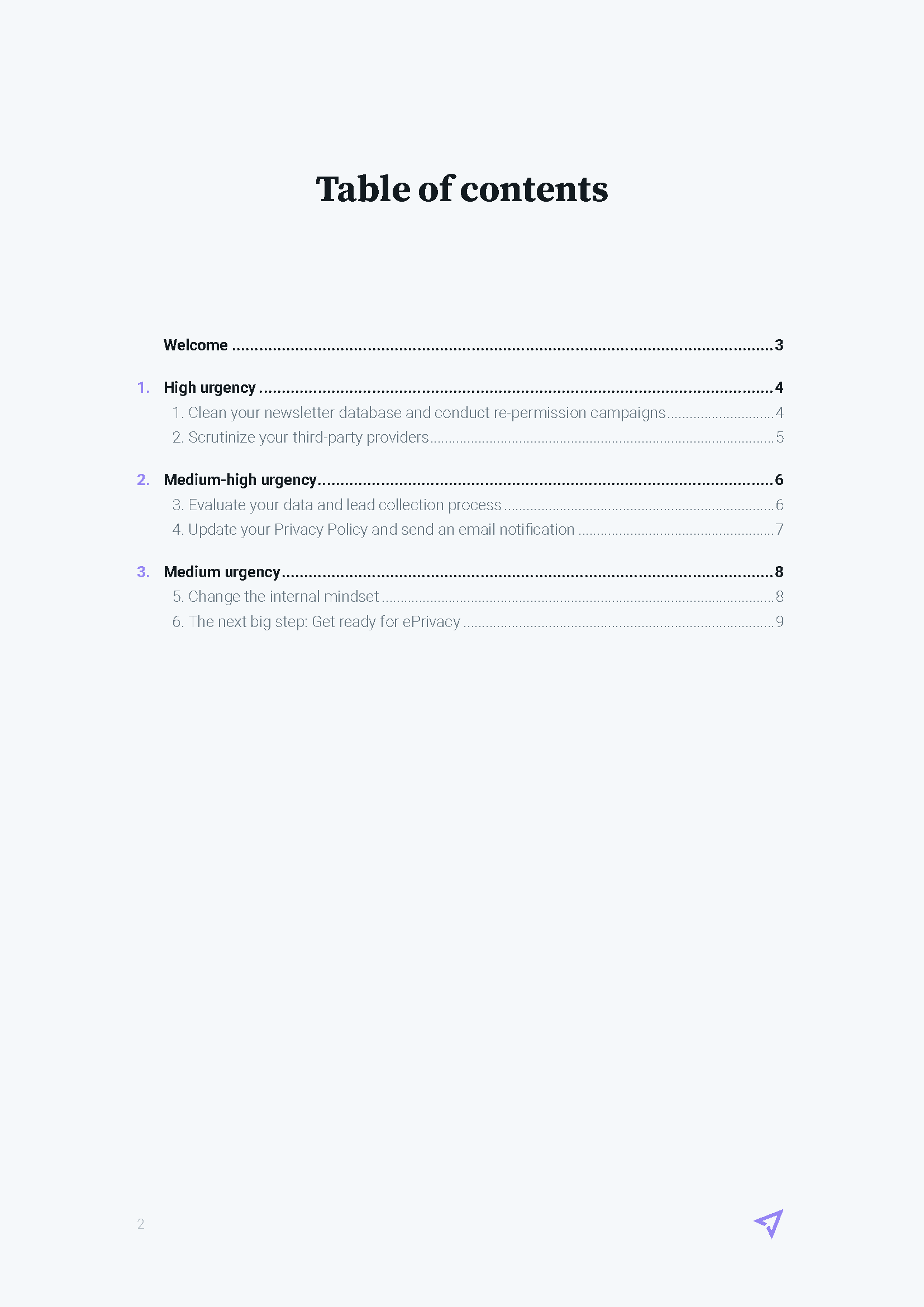Ebooks
GDPR SOS Kit for marketers
Everything you need to know about GDPR-compliant marketing.
WHAT’S INSIDE
In this kit, you will find:
How to clean your newsletter database and conduct re-permission campaigns
How to scrutinise your third-party providers
How to evaluate your data and lead collection process
How to update your privacy policy and send an email notification
How to change your company’s internal mindset
How to get ready for the next challenge ePrivacy



GDPR SOS KIT FOR MARKETERS
PUBLISHED ON
Discover the actions you need to take to do marketing under GDPR
GDPR came into effect in May 2018, and still a large number of small-to-medium size companies are still not sure, or not confident, they are GDPR compliant. The penalties for non-compliance are drastic, not to mention the business impacts and consequences, and no one is entirely exempt. Regardless of company size or location, anyone collecting, processing and storing personal data of citizens within Europe needs to be compliant.
We know first-hand what it takes for a marketing department to implement changes to ensure compliance with national and international regulations. We also know that for most marketers, GDPR hasn’t been a full-time priority. But if you’re still unsure, there are changes you must definitely make as soon as possible if you haven’t already!




